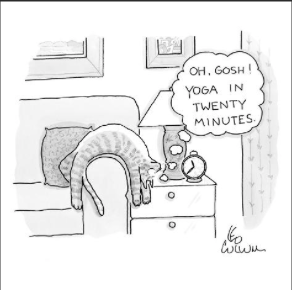
Look at Adrien’s spaghetti tree ! Isn’t it fantastic ?
Correction for day 14
1 Léonie’s routine :
- 1 She goes to school by tramway. Sometimes she walks to school.
- 2 She has milk and toast.
- 3 She has breakfast in the dining-room.
- 4 She doesn’t watch TV in the kitchen.
- 5 She watches TV in the afternoon.
- 6 She doesn’t like horror films, but she likes series.
- 7 She doesn’t often make my bed.
- 8 She has a shower in the evening.
2 The Queen’s routine :
In the morning, the Queen has breakfast in bed. After breakfast, she feeds her dogs. Then she reads the newspaper. After that, she takes her dogs for a walk. Next, she does the gardening. Then, the Queen and her gardener eat lunch. After lunch, she spends some time with her husband. Then she drives to the stables. The Queen and her friend ride their horses. After that, the Queen returns home. Next, she has afternoon tea. Then, the Queen does some work in her office. In the evening, the Queen and her family watch T.V. Before bed, she writes in her diary. Finally, the Queen goes to bed.
DAY 15
1 WRITE THIS FRENCH – ENGLISH VOCABULARY LIST : écrivez la liste de vocabulaire français-anglais. Vous trouverez les expressions dans le texte. On présente les verbes avec TO (c’est la forme de l’infinitif en anglais).
nourrir les chiens : to feed the dogs
promener les chiens :
jardiner :
travailler :
regarder la T.V.:
déjeuner :
prendre le thé :
écrire dans son journal:
aller se coucher :
rentrer à la maison :
conduire :
lire :
faire du cheval :
passer du temps :
prendre son petit-déjeuner :
2 WRITE ABOUT A PARENT OR A FRIEND’S LOCKDOWN ROUTINE AND ANSWER THE QUESTIONS : écrivez au sujet de la routine de confinement d’un parent ou d’un ami, en vous aidant des questions. N’oubliez pas les terminaisons de la 3ème personne du singulier.
Who is the person ?
What time does that person *wake up ? = se réveiller
Do *they have breakfast in the kitchen or in the dining-room ? (quand on ne sait pas si l’on va parler d’un homme ou d’une femme, on en parle à la 3ème personne du pluriel, il ne faut pas oublier de répondre à la 3ème personne du singulier : he/she…)
What do they have for breakfast ?
Do they drive to work ? Do they *leave home to work ? Do they work from home ? (*leave home= quitter la maison
*work from home = travailler depuis la maison)
Do they have lunch at home ? Do they *cook lunch ? Do you *help with lunch ? (* cook= cuisiner/*help = aider)
Do they practice physical activities ?
Do they play games with you ?
Do they watch T.V. in the evening ?
Do they listen to music ?
What time do they go to bed ?

